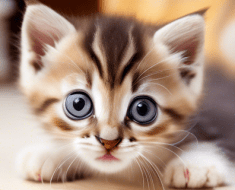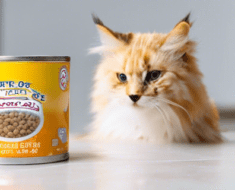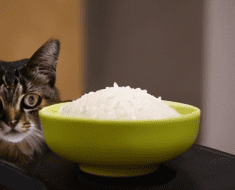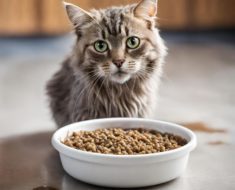Welcome, fellow cat lovers and owners! If you’re here, you likely want the best for your feline companion, and that includes their urinary health. One question that often arises in the world of cat nutrition is whether high-protein cat food is beneficial for urinary health. Let’s dive into this topic with curiosity and care, ensuring our furry friends receive the nutrition they deserve.
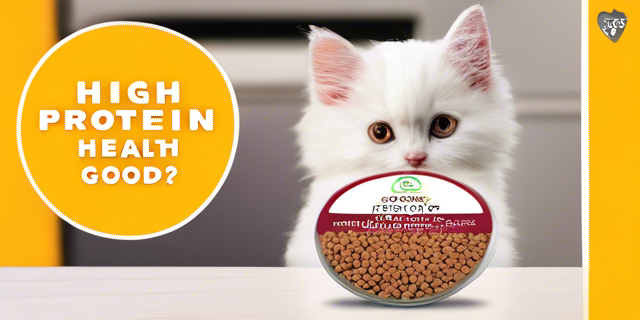
Understanding Feline Nutrition
Before delving into the specifics of high-protein cat food, it’s essential to grasp the basics of feline nutrition. Cats are obligate carnivores, meaning they require a diet rich in animal-derived proteins to thrive. Unlike humans or omnivorous animals, cats have specific dietary needs that center around meat-based proteins and fats.
The Importance of Protein for Cats
Proteins are the building blocks of life, and for cats, they play a crucial role in maintaining overall health and well-being. From supporting muscle growth and repair to aiding in the function of essential organs, such as the kidneys, protein is indispensable for feline nutrition.
High Protein Cat Food: What Does it Offer?
High-protein cat food is formulated to provide cats with the protein content they need to thrive. These diets typically feature animal-derived proteins as the primary ingredient, such as chicken, turkey, or fish. By offering a higher protein content, these foods aim to mimic the natural diet of cats in the wild.
The Myth of Low Protein for Urinary Health
In the past, there was a common misconception that low-protein diets were beneficial for cats with urinary issues. However, recent research has debunked this myth. In reality, adequate protein intake is crucial for maintaining urinary health in cats.
Protein and Urinary Health: The Connection
You might be wondering how high-protein cat food impacts urinary health. The answer lies in understanding the role of protein in the feline body. Protein supports the maintenance of lean muscle mass, which is essential for proper bladder function. Additionally, protein helps regulate urine pH levels, reducing the risk of urinary crystals and stones.
Finding the Right Balance
While high-protein cat food can be beneficial for urinary health, it’s essential to find the right balance. Too much protein can strain the kidneys, especially in cats with pre-existing renal issues. That’s why it’s crucial to consult with your veterinarian to determine the optimal protein level for your cat based on their age, weight, and health status.
The Role of Moisture Content
In addition to protein content, the moisture content of cat food also plays a significant role in urinary health. Cats have a naturally low thirst drive, making them prone to dehydration. Moisture-rich diets, such as wet or raw food, can help ensure adequate hydration and promote urinary tract health.
Choosing the Best High Protein Cat Food
When selecting high-protein cat food for your furry friend, opt for quality brands that prioritize animal-derived proteins and avoid fillers or artificial additives. Look for formulations tailored to your cat’s life stage and specific health needs.
Monitoring Your Cat’s Health
While high-protein cat food can be beneficial for urinary health, it’s essential to monitor your cat’s health regularly. Keep an eye out for any changes in urinary habits, such as increased frequency or difficulty urinating, and consult with your veterinarian if you notice any concerning symptoms.
Conclusion: Providing Optimal Nutrition for Your cat
In conclusion, high-protein cat food can indeed be good for urinary health when chosen and balanced correctly. By understanding the nutritional needs of your cat and selecting quality food tailored to their requirements, you can support their overall health and well-being for years to come.
Frequently Asked Questions
1. Is high-protein cat food suitable for all cats? Yes, high-protein cat food can benefit most cats, but it’s essential to consider individual health needs and consult with a veterinarian.
2. Can high-protein cat food cause kidney problems? When fed appropriately, high-protein cat food is unlikely to cause kidney problems. However, cats with pre-existing renal issues may require special dietary considerations.
3. How do I transition my cat to a high-protein diet? Gradually introduce new food over 7-10 days by mixing increasing amounts of the new food with the old food until fully transitioned.
4. Are there any risks associated with high-protein diets for cats? Excessive protein intake can strain the kidneys, so it’s crucial to feed an appropriately balanced diet and monitor your cat’s health regularly.
5. Can I mix high-protein dry food with wet food? Yes, mixing high-protein dry food with wet food can provide additional moisture and nutritional variety for your cat’s diet, but ensure the overall protein content remains appropriate.

